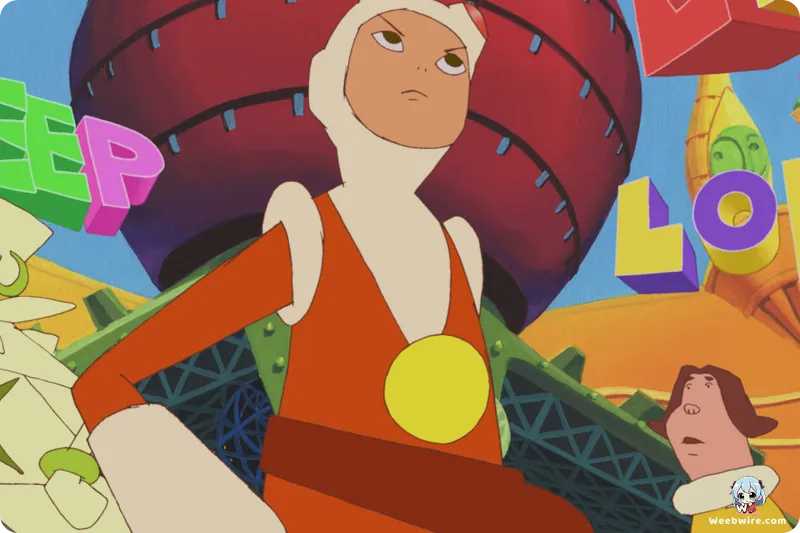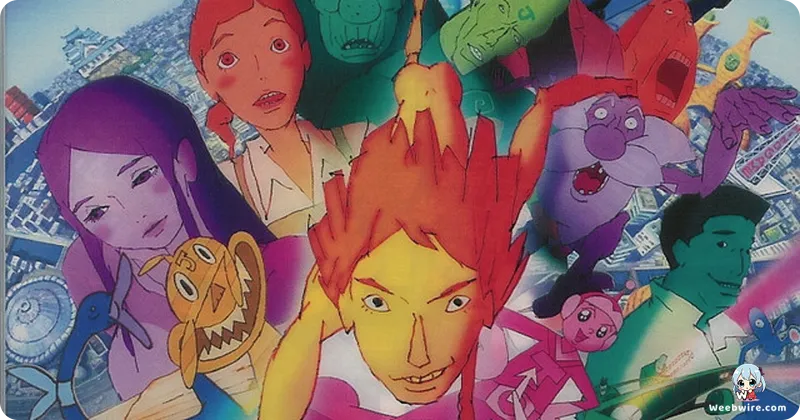Beyond Reality: Exploring the Revolutionary Artistry and Enduring Legacy of 'Mind Game'

In an anime landscape often defined by established conventions, Masaaki Yuasa's 2004 directorial debut, Mind Game, emerged as an unparalleled masterpiece. This film exploded onto the scene with its experimental animation and profound philosophical storytelling. Far from a typical cinematic experience, this vibrant, chaotic, and deeply introspective journey quickly cultivated a dedicated cult following and garnered critical acclaim for its sheer audacity and groundbreaking visual language. This article explores the captivating and crucial details that firmly establish Mind Game as an enduring landmark in the history of animation.
Masaaki Yuasa's Uncompromising Vision
At the core of Mind Game's revolutionary identity is its director, Masaaki Yuasa. Building upon a reputation for distinctive animation work, Mind Game represented his ambitious leap into feature film direction. Yuasa's vision was uncompromising: to craft a film that felt like a dream, unbound by the constraints of reality or conventional cinematic rules. This philosophy translated into a visual smorgasbord, seamlessly blending an astonishing array of techniques. These included traditional hand-drawn animation, rotoscoping, 3D CGI, live-action inserts, and even photographs, often utilized within the very same scene.
A Kaleidoscope of Visual Experimentation
The film's animation style is arguably its most audacious and defining aspect. Unlike the majority of anime productions, Mind Game presents a true kaleidoscope of visual experimentation. Characters' appearances fluctuate dramatically, shifting from meticulously detailed to crudely sketched, from realistic portrayals to wildly exaggerated forms, sometimes within mere seconds. This deliberate inconsistency serves to disorient the viewer, effectively mirroring protagonist Nishi's fragmented perception of reality following a traumatic near-death experience. This visual assault was a profound artistic choice, intended to convey the fluidity of memory, the subjectivity of human experience, and the boundless possibilities inherent within the human mind.

Profound Philosophical Depths
Beyond its visual pyrotechnics, Mind Game is rich with profound philosophical undertones, exploring universal themes of life, death, second chances, and the pursuit of one's true desires. The narrative, while appearing chaotic on the surface, follows Nishi, a timid manga artist. After a bizarre encounter with the Yakuza and an unexpected trip to the afterlife, Nishi is granted a rare opportunity to relive his life. His subsequent surreal escape from the belly of a whale with his childhood crush Myon and her sister Yan leads to an extended period of introspection and extraordinary adventure. The film's non-linear storytelling and dreamlike sequences actively challenge audiences to piece together its deeper meaning, urging viewers to embrace the absurd and to truly seize the preciousness of life.
Enduring Legacy and Critical Acclaim
Produced by the renowned Studio 4°C, Mind Game was a labor of love and a testament to immense creative freedom for Yuasa. His hands-on approach ensured that his unique vision was fully realized without compromise. Although it did not achieve commercial blockbuster status upon its 2004 release, it immediately garnered significant critical acclaim. The film notably won the prestigious Ōfuji Noburō Award at the Mainichi Film Awards and received widespread international praise from critics and film festivals alike.
Over the years, Mind Game has firmly solidified its status as a cult classic. It has profoundly influenced a new generation of animators and continues to inspire contemporary directors. Its enduring legacy lies in its fearless exploration of animation's true potential, unequivocally proving that the medium is capable of conveying complex philosophical ideas and visceral emotional experiences without conforming to mainstream expectations. For an unforgettable, mind-bending experience that defies easy categorization, Mind Game remains an essential watch. It is not merely a film, but an experience, a challenge, and a powerful testament to boundless creativity.
Credits
Mind Game
Author
Robin Nishi
Cover Art
Masaaki Yuasa
Studio
Studio 4°C
Publisher
Enterbrain
Producers





